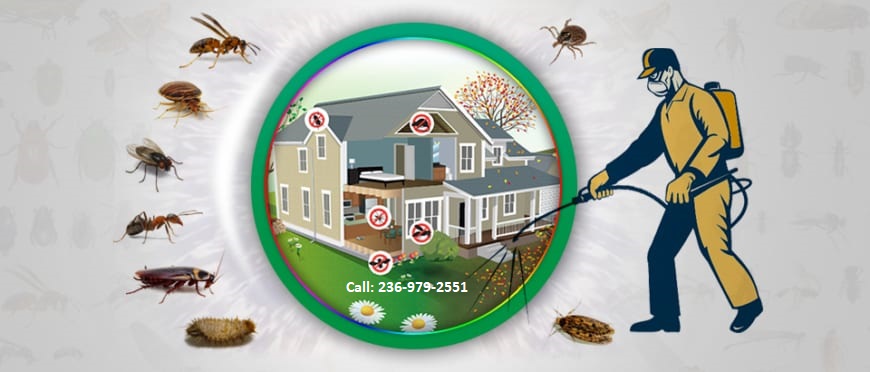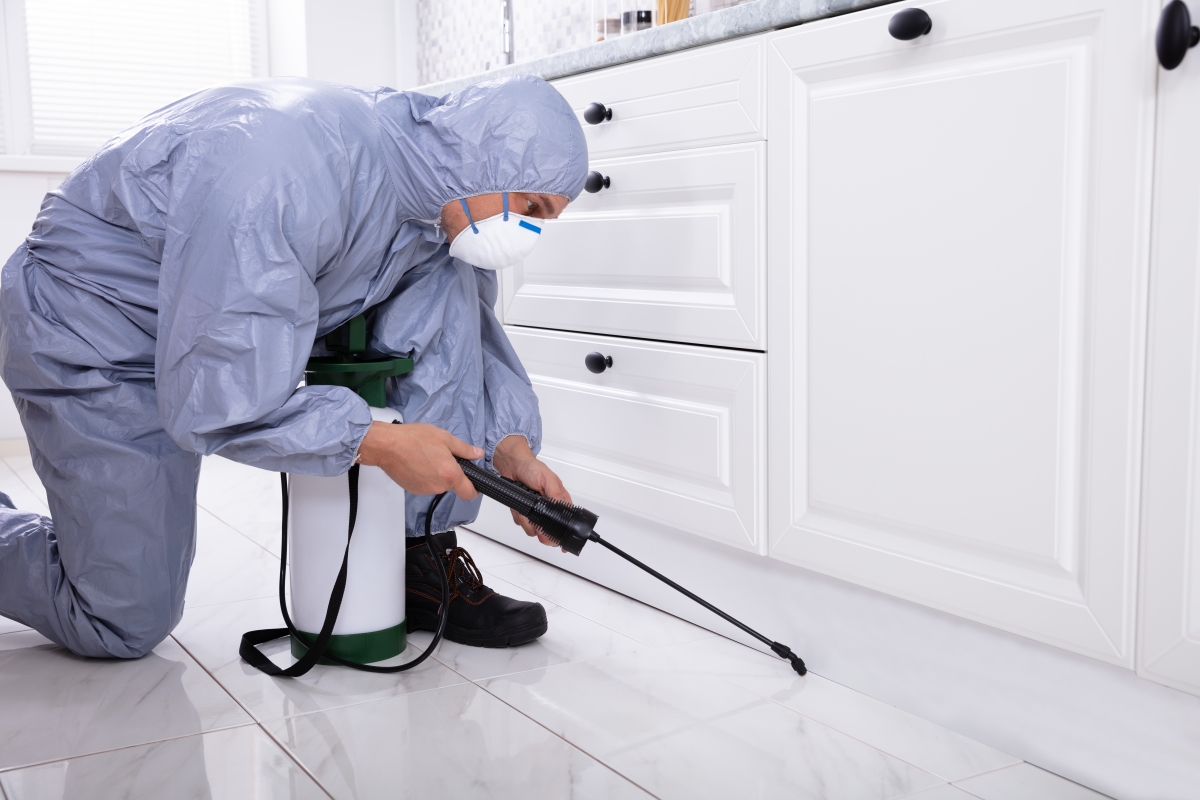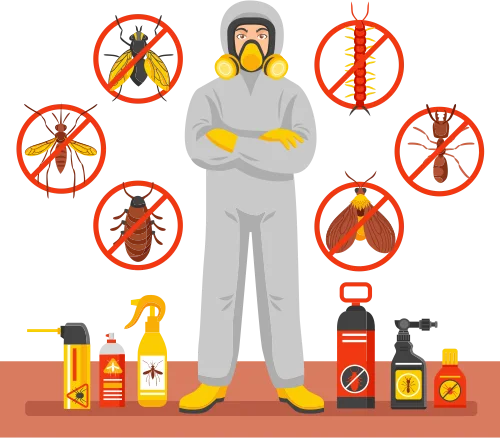Effective Coquitlam Pest Control Solutions for a Pest-Free Environment
Effective Coquitlam Pest Control Solutions for a Pest-Free Environment
Blog Article
Safe and Reputable Insect Control for Lasting Security
Reliable bug monitoring requires a multifaceted technique that stabilizes ecological integrity with the demand for effective parasite suppression. The nuances of these methods may not be right away clear, motivating a more detailed evaluation of the practices that can lead to lasting insect control end results.
Comprehending Bug Control Approaches
Bug control encompasses a variety of approaches targeted at managing and eradicating unwanted pests and rodents that can endanger both wellness and property. Understanding these methods is essential for reliable pest management.
The main groups of bug control approaches consist of mechanical, biological, and chemical methods. Mechanical techniques involve physical barriers and traps to stop pest entrance and capture undesirable varieties. For example, making use of displays on windows or utilizing sticky traps can substantially minimize pest populaces without introducing harmful materials.

Chemical insect control is frequently the most recognized approach, using pesticides to get rid of bugs. These chemicals can be efficient however have to be used with care to prevent adverse effects on non-target varieties and the setting.
Benefits of Eco-Friendly Solutions
How can green services change bug control techniques? The adoption of eco-friendly bug control techniques supplies various benefits, significantly improving the performance and safety and security of bug monitoring.

An additional benefit is the favorable influence on neighborhood biodiversity. Environment-friendly options are designed to target certain insects while protecting beneficial pests and wild animals, advertising a well balanced ecological community. This approach aligns with the growing customer demand for sustainable practices, enhancing the online reputation of parasite control service providers.
Integrated Pest Administration Techniques
The implementation of green remedies naturally leads to the adoption of Integrated Parasite Management (IPM) methods, which even more improve bug control efficacy. IPM is an alternative technique that incorporates multiple strategies to handle bug populations while minimizing ecological effect. This strategy stresses using biological, social, mechanical, and chemical controls, guaranteeing a lasting and well balanced method of bug management.
One essential aspect of IPM is the comprehensive assessment of bug task and ecological conditions. By checking parasite populaces and recognizing their life cycles, experts can carry out targeted treatments that interrupt the pest's environment or lifecycle, decreasing reliance on chemical pesticides. Furthermore, cultural practices such as plant turning and environment control can dramatically lessen pest facility and recreation.
An additional important part is the use of biological control representatives, such as helpful insects or microorganisms, which can normally suppress parasite populaces. When chemical applications are necessary, IPM prioritizes the usage of low-risk chemicals and uses them precisely, reducing exposure to non-target organisms and human beings.
Incorporating IPM strategies not just improves insect control performance but additionally promotes a safer environment, lining up with the expanding need for sustainable practices in parasite management.
Safe Practices for Home Owners
Comprehending the importance of risk-free methods in bug control can equip property owners to effectively take care of parasite problems while guarding their health and the atmosphere. Carrying out safe approaches and safety nets is essential in minimizing exposure to hazardous chemicals.
Home owners need to first assess their atmosphere for problems that attract parasites, such as standing food, clutter, and water waste. Regularly cleansing and securing access factors can prevent parasites from attacking the home. Utilizing natural deterrents, such as vital oils or diatomaceous planet, can provide efficient choices to chemical pesticides.
When chemical treatments are required, property owners should opt for products that are specifically classified as safe for property use. It is vital to follow application standards Learn More Here carefully to avoid overexposure. Using targeted therapies in areas where bugs are determined, rather than covering spraying, can significantly decrease chemical use.
Last but not least, preserving open communication with parasite control professionals is important. House owners must inquire concerning the safety and security of items made use of and request environment-friendly options whenever possible. By adopting these safe practices, property owners can develop a much healthier living setting while efficiently handling bug issues.

Tips for Long-Term Security
Establishing a parasite management technique that emphasizes long-term defense can significantly boost the efficiency of the risk-free practices previously discussed. To attain this, property owners should execute normal inspections of their home, concentrating on hidden areas such as attics, cellars, and crawl rooms. Early detection of insect activity is important in stopping problems from holding.
These methods reduce attractants that draw parasites right into the home. Securing entrance points, such as splits around home windows and doors, can effectively block potential bug accessibility.
Landscaping needs to additionally be considered; keeping plants trimmed and keeping a distance between greenery and the home reduces hiding areas for bugs. Making use of all-natural deterrents, such as vital oils or diatomaceous earth, can better prevent invasions without resorting to severe chemicals.
Last but not least, teaming up with a specialist pest control service for routine evaluations can offer an extra layer of safety and security. These professionals can supply tailored recommendations and progressed therapies, guaranteeing that your home stays safeguarded versus pests in the long-term.
Verdict
Finally, safe and reliable insect control requires a diverse method that highlights green approaches and integrated bug monitoring. By executing natural deterrents, carrying out routine examinations, and maintaining appropriate hygiene, homeowner can significantly lower bug populations while see post securing beneficial pests and the environment. Collaboration with specialist parasite control services improves the pest control services efficiency of these techniques, making certain tailored services that give long lasting defense and tranquility of mind against future invasions.
Effective bug monitoring requires a diverse technique that stabilizes eco-friendly integrity with the demand for reliable bug suppression. The adoption of environmentally friendly insect control approaches uses numerous benefits, dramatically improving the performance and safety of insect management.The execution of environment-friendly services normally leads to the adoption of Integrated Parasite Management (IPM) strategies, which even more boost insect control efficiency. exterminator coquitlam. By keeping an eye on parasite populations and determining their life cycles, specialists can implement targeted treatments that interrupt the insect's environment or lifecycle, decreasing reliance on chemical pesticides.In final thought, reputable and safe parasite control calls for a complex technique that emphasizes environmentally friendly methods and integrated pest administration
Report this page